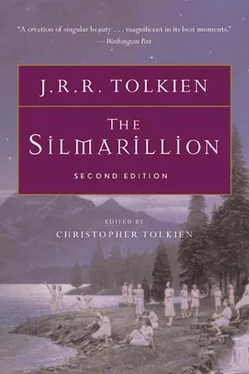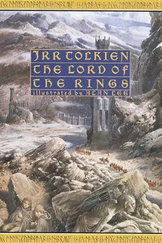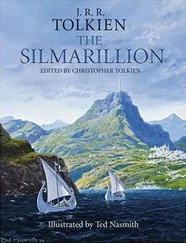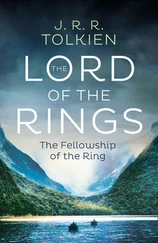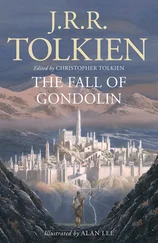There are three phases in their fall from grace. First acquiescence, obedience that is free and willing, though without complete understanding. Then for long they obey unwillingly, murmuring more and more openly. Finally they rebel – and a rift appears between the King’s men and rebels, and the small minority of persecuted Faithful.
In the first stage, being men of peace, their courage is devoted to sea-voyages. As descendants of Eärendil, they became the supreme mariners, and being barred from the West, they sail to the uttermost north, and south, and east. Mostly they come to the west-shores of Middle-earth, where they aid the Elves and Men against Sauron, and incur his undying hatred. In those days they would come amongst Wild Men as almost divine benefactors, bringing gifts of arts and knowledge, and passing away again – leaving many legends behind of kings and gods out of the sunset.
In the second stage, the days of Pride and Glory and grudging of the Ban, they begin to seek wealth rather than bliss. The desire to escape death produced a cult of the dead, and they lavished wealth and art on tombs and memorials. They now made settlements on the west-shores, but these became rather strongholds and ‘factories’ of lords seeking wealth, and the Númenóreans became tax-gatherers carrying off over the sea ever more and more goods in their great ships. The Númenóreans began the forging of arms and engines.
This phase ended and the last began with the ascent of the throne by the thirteenth [9] When this letter was written the original history of the rulers of Númenor, whereby Tar-Calion (Ar-Pharazôn) was the thirteenth and not as afterwards the twenty-fifth, was still present.
king of the line of Elros, Tar-Calion the Golden, the most powerful and proud of all kings. When he learned that Sauron had taken the title of King of Kings and Lord of the World, he resolved to put down the ‘pretender’. He goes in strength and majesty to Middle-earth, and so vast is his armament, and so terrible are the Númenóreans in the day of their glory that Sauron’s servants will not face them. Sauron humbles himself, does homage to Tar-Calion, and is carried off to Númenor as hostage and prisoner. But there he swiftly rises by his cunning and knowledge from servant to chief counsellor of the king, and seduces the king and most of the lords and people with his lies. He denies the existence of God, saying that the One is a mere invention of the jealous Valar of the West, the oracle of their own wishes. The chief of the gods is he that dwells in the Void, who will conquer in the end, and in the void make endless realms for his servants. The Ban is only a lying device of fear to restrain the Kings of Men from seizing everlasting life and rivalling the Valar.
A new religion, and worship of the Dark, with its temple under Sauron arises. The Faithful are persecuted and sacrificed. The Númenóreans carry their evil also to Middle-earth and there become cruel and wicked lords of necromancy, slaying and tormenting men; and the old legends are overlaid with dark tales of horror. This does not happen, however, in the North West; for thither, because of the Elves, only the Faithful who remain Elf-friends will come. The chief haven of the good Númenóreans is near the mouth of the great river Anduin. Thence the still beneficent influence of Númenor spreads up the River and along the coasts as far north as the realm of Gilgalad, as a Common Speech grows up.
But at last Sauron’s plot comes to fulfilment, Tar-Calion feels old age and death approaching, and he listens to the last prompting of Sauron, and building the greatest of all armadas, he sets sail into the West, breaking the Ban, and going up with war to wrest from the gods ‘everlasting life within the circles of the world’. Faced by this rebellion, of appalling folly and blasphemy, and also real peril (since the Númenóreans directed by Sauron could have wrought ruin in Valinor itself ) the Valar lay down their delegated power and appeal to God, and receive the power and permission to deal with the situation; the old world is broken and changed. A chasm is opened in the sea and Tar-Calion and his armada is engulfed. Númenor itself on the edge of the rift topples and vanishes for ever with all its glory in the abyss. Thereafter there is no visible dwelling of the divine or immortal on earth. Valinor (or Paradise) and even Eressëa are removed, remaining only in the memory of the earth. Men may sail now West, if they will, as far as they may, and come no nearer to Valinor or the Blessed Realm, but return only into the east and so back again; for the world is round, and finite, and a circle inescapable – save by death. Only the ‘immortals’, the lingering Elves, may still if they will, wearying of the circle of the world, take ship and find the ‘straight way’, and come to the ancient or True West, and be at peace.
So the end of the Second Age draws on in a major catastrophe; but it is not yet quite concluded. From the cataclysm there are survivors: Elendil the Fair, chief of the Faithful (his name means Elf-friend ), and his sons Isildur and Anarion . Elendil, a Noachian figure, who has held off from the rebellion, and kept ships manned and furnished off the east coast of Númenor, flees before the overwhelming storm of the wrath of the West, and is borne high upon the towering waves that bring ruin to the west of the Middle-earth. He and his folk are cast away as exiles upon the shores. There they establish the Númenórean kingdoms of Arnor in the north close to the realm of Gilgalad, and Gondor about the mouths of Anduin further south. Sauron, being an immortal, hardly escapes the ruin of Númenor and returns to Mordor, where after a while he is strong enough to challenge the exiles of Númenor.
The Second Age ends with the Last Alliance (of Elves and Men), and the great siege of Mordor. It ends with the overthrow of Sauron and destruction of the second visible incarnation of evil. But at a cost, and with one disastrous mistake. Gilgalad and Elendil are slain in the act of slaying Sauron. Isildur, Elendil’s son, cuts the ring from Sauron’s hand, and his power departs, and his spirit flees into the shadows. But the evil begins to work. Isildur claims the Ring as his own, as ‘the Weregild of his father’, and refuses to cast it into the Fire nearby. He marches away, but is drowned in the Great River, and the Ring is lost, passing out of all knowledge. But it is not unmade, and the Dark Tower built with its aid still stands, empty but not destroyed. So ends the Second Age with the coming of the Númenórean realms and the passing of the last kingship of the High Elves.
The Music of the Ainur
There was Eru, the One, who in Arda is called Ilúvatar; and he made first the Ainur, the Holy Ones, that were the offspring of his thought, and they were with him before aught else was made. And he spoke to them, propounding to them themes of music; and they sang before him, and he was glad. But for a long while they sang only each alone, or but few together, while the rest hearkened; for each comprehended only that part of the mind of Ilúvatar from which he came, and in the understanding of their brethren they grew but slowly. Yet ever as they listened they came to deeper understanding, and increased in unison and harmony.
And it came to pass that Ilúvatar called together all the Ainur and declared to them a mighty theme, unfolding to them things greater and more wonderful than he had yet revealed; and the glory of its beginning and the splendour of its end amazed the Ainur, so that they bowed before Ilúvatar and were silent.
Then Ilúvatar said to them: ‘Of the theme that I have declared to you, I will now that ye make in harmony together a Great Music. And since I have kindled you with the Flame Imperishable, ye shall show forth your powers in adorning this theme, each with his own thoughts and devices, if he will. But I will sit and hearken, and be glad that through you great beauty has been wakened into song.’
Читать дальше
